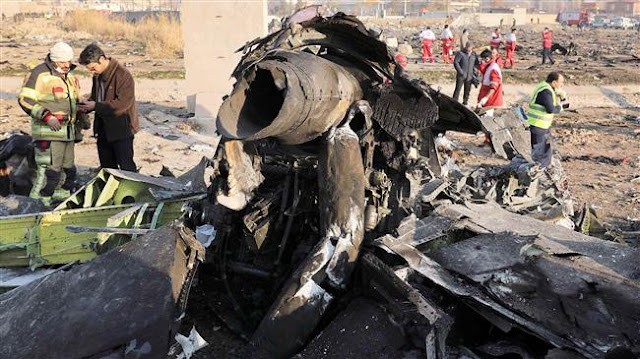David French: ‘And No One Will Make Them Afraid’
Wait. Locusts? Now, obviously, those are not Zachary Evans’s words. He does not agree with the sentiment—he’s reporting its existence. And while many people were outraged to see that sentiment in the pages of National Review, I know beyond a shadow of a doubt that his editors are not anti-Semites. But it’s extraordinarily jarring to read those words. We overuse the term “dehumanizing” in modern discourse, but a person comparing people to insects is the very definition of dehumanizing. And over what? Zoning disputes? Local elections? Job choices?Australia’s ABC News Considers the ‘Case Against Zionism’
Moreover, there’s another key sentence in the article: “There is no indication that [the Jersey City and Monsey attackers] attacked Jewish targets for reasons related to outmigration from New York City to the surrounding region.” So why the extensive focus on the thing that doesn’t seem material to the attacks?
In fact, to the extent that we know the attackers’ motivations, their hatreds ran very, very deep. The Monsey attacker searched the question “Why did Hitler hate the Jews?” One of the Jersey City attackers followed “Black Hebrew Israelite theology,” a fringe belief that, as Evans writes, holds that “African Americans are the true descendants of the ancient Israelites and that Jews are essentially pretenders to the faith.”
As I read Evans’s piece, I had a singular thought: He’s waving away the mountain and focusing on a pebble. He’s missing the ocean for the puddle. People do not launch machete attacks over zoning disputes. They don’t open fire in kosher supermarkets because their new neighbors don’t make good salaries. There might be “simmering local conflicts” over zoning (welcome to America; there are always “simmering local conflicts” over zoning), but none of that is truly relevant to deadly violence.
It might be hard for Abu Sita and his ilk to stomach, but the concept of a Jewish nation goes back millennia. The Hebrew term Am Yisrael, meaning the Nation of Israel, is found regularly in ancient Jewish texts.The Palestinian delusion
Abu Sita is so busy condemning Zionism that he cannot bring himself to recognize that anti-Zionism is riddled with antisemitism. Halfway through his piece, he writes that “anti-Zionism from the outset was not antisemitic”. This is a stunning rewriting of history. As long as Zionism has existed, there have always been antisemitic elements present among those objecting to it, and these have elements only become more prominent with time. Abu Sita utterly ignores the antisemitism which riddles anti-Zionism.
Throughout the piece, Abu Sita makes numerous contentious claims. For example: “At the time of the Basel Congress, some 95 percent of the population were Arab Palestinians who owned 99 percent of the land.”
In reality, most of the land was owned by absentee property owners from other parts of the Ottoman Empire. That’s how the Jews managed to buy such a large amount of the land.
ABC Australia Does Journalism a Disservice
The op-ed section of a newspaper or media outlet is often its most vibrant and expressive. A good op-ed supplement will contain pieces from a range of perspectives, and allow writers to compete in the battleground of ideas.
As Australia’s national broadcaster, ABC Australia owes its citizens a platform upon which a wide range of ideas should be aired and discussed. Nevertheless, there should be fair limits as to what can and cannot be published. ABC Australia does journalism a disservice when publishing barely-disguised hate speech.
Pieces which serve to totally delegitimize an entire nation, articles which undermine the right of millions of people to live where they are, do not promote peace and do not deserve a platform in the form of one of a country’s most cherished institutions.
Virulent hatred of this kind has no place on the website of a national broadcaster such as ABC Australia.
Renowned jihad watcher Robert Spencer's latest book is a sobering look at the impossibility of reaching a lasting agreement with the Arabs living in and out of the only Jewish State.
“From beginning to end, the conflict with Israel is all about Islam,” writes world-renowned jihad watcher Robert Spencer in his latest superlative book, The Palestinian Delusion: The Catastrophic History of the Middle East Peace Process. He documents in detail how jihadists and their allies worldwide have skillfully weaponized an invented Palestinian Arab identity against the Zionist struggle for a Jewish state.
Spencer dissects a decades-old “propaganda success that Josef Goebbels and the editors of Pravda would have envied,” namely the global myth that Palestinians are an “indigenous population.” So declare institutions like the Office of the United Nations High Commissioner for Refugees (UNHCR), while Palestinian leaders fantasize about a “link between the ancient Canaanites or Jebusites and the modern-day Palestinians.” In reality, Roman occupiers in 134 first derived the name Palestine after the “Israelites’ ancient enemies, the Philistines,” in order to eradicate the identity of defeated Jewish rebels. The self-named "Palestinians" descend from the Arabs who invaded in the 7th century.
In subsequent centuries most Jews entered diaspora exile, leaving their ancestral homeland to decay under largely disinterested imperialists such as various Muslim powers following seventh-century Arab conquest. Mark Twain's 1869 travelogue The Innocents Abroad thus states that “Palestine sits in sackcloth and ashes.” Historian William B. Ziff wrote in 1938 that at the 20th century’s beginning Palestine's 40,000 Jews "and about 140,000 others of all complexions...had no other feeling for this pauperized, diseased-ridden country than a fervent desire to get away."
This wasteland transformed when Zionist Jews, beginning in the 1880s, sought to reestablish a Jewish state. Their regional development investment ironically increased the Arab population which came seeking employment. Particularly the League of Nations Palestine Mandate entrusted to Britain in 1922 as a “Jewish national home” on territory lost by the collapsing Ottoman Empire in World War I witnessed significant Arab immigration.





































